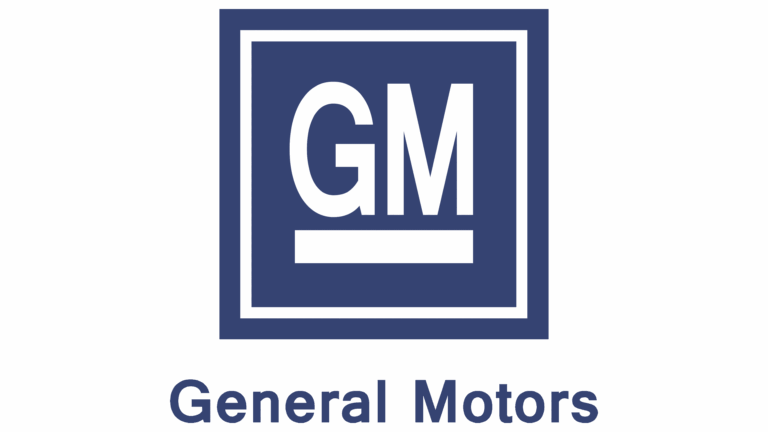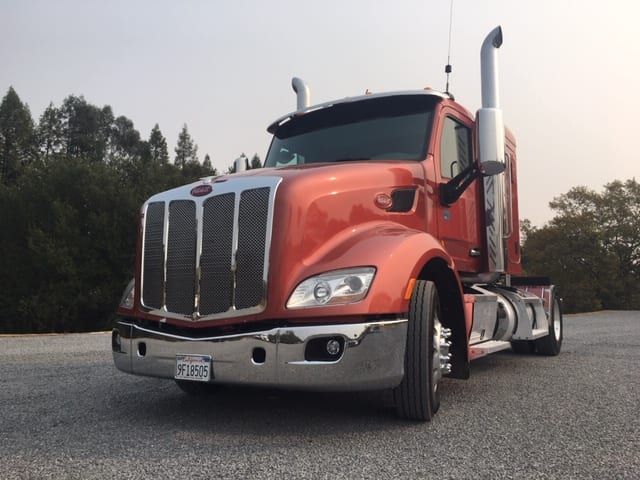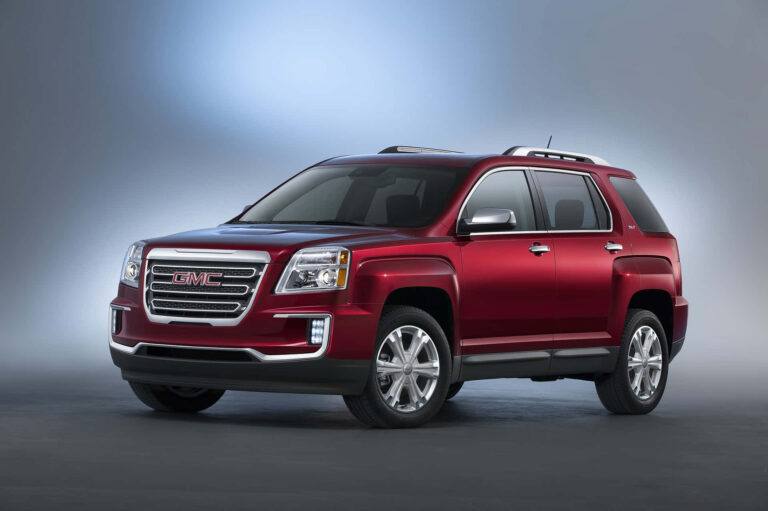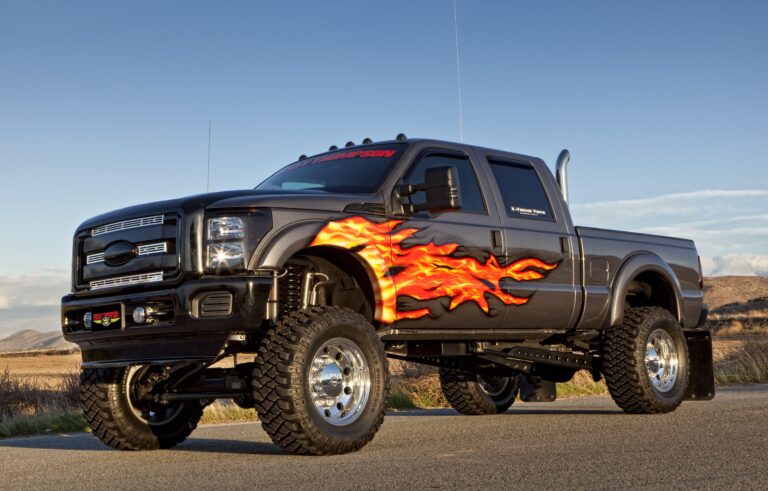How Much To Rent A U-Haul Car Trailer: Your Comprehensive Guide
How Much To Rent A U-Haul Car Trailer: Your Comprehensive Guide cars.truckstrend.com
Transporting a vehicle can be a significant undertaking, whether you’re moving cross-country, relocating a non-running car, or simply need to get a project vehicle from one garage to another. For many, renting a U-Haul car trailer emerges as a practical and cost-effective solution. But before you hitch up and hit the road, understanding the costs involved and the various factors that influence them is crucial.
This comprehensive guide will break down everything you need to know about how much it costs to rent a U-Haul car trailer. We’ll explore the different types of trailers, the key elements that dictate pricing, potential hidden fees, and offer practical advice to help you budget effectively and ensure a smooth, affordable rental experience.
How Much To Rent A U-Haul Car Trailer: Your Comprehensive Guide
Understanding U-Haul Car Trailer Options
U-Haul offers two primary types of vehicle transport trailers, each designed for different needs and impacting your rental cost:
-
Auto Transport (Car Trailer): This is the full-sized, four-wheel trailer that lifts your entire vehicle off the ground. It features an integrated ramp system, straps to secure all four wheels, and a low-profile design for stability.
- Best for: Long-distance moves, transporting non-running vehicles, protecting your vehicle’s tires and drivetrain from wear and tear during transit, and heavier cars.
- Key Feature: All four wheels of your vehicle are off the ground, making it ideal for longer hauls.

-
Tow Dolly: This is a two-wheel trailer that lifts only the front two wheels of your vehicle off the ground, allowing the rear wheels to roll on the pavement.
- Best for: Shorter distances, front-wheel-drive vehicles, and lighter cars.
- Key Feature: More affordable than the Auto Transport, but your vehicle’s rear wheels will accumulate mileage and experience wear. Not suitable for all-wheel-drive or rear-wheel-drive vehicles unless specific drivetrain precautions are taken (e.g., disconnecting a driveshaft).
While both serve to move a vehicle, the "car trailer" typically refers to the Auto Transport. Our focus will be primarily on the costs associated with this more robust option, though we’ll touch upon the Tow Dolly for comparison.
Key Factors Influencing U-Haul Car Trailer Rental Costs
The price you pay for a U-Haul car trailer rental is not static; it’s a dynamic figure influenced by several variables. Understanding these factors will help you estimate your expenses accurately:
-
Distance and Rental Type (One-Way vs. In-Town): This is arguably the most significant cost driver.
- One-Way Rentals: When you pick up a trailer in one location and drop it off in another, U-Haul charges a premium. These rentals are priced based on the total estimated mileage for your trip and the duration required to complete it. The cost covers the logistical challenge of returning the trailer to its origin or another high-demand location. Expect these to be significantly more expensive, especially for cross-country moves.
- In-Town Rentals: If you pick up and return the trailer to the same U-Haul location, you’ll pay a daily rate. These are much more affordable and ideal for local moves, transporting a car to a nearby mechanic, or moving it between properties within the same city.
-
Rental Duration:
- For in-town rentals, the cost is typically a daily rate. The longer you keep it, the more you pay.
- For one-way rentals, U-Haul provides a set number of days to complete your trip based on the distance. Exceeding this allotted time can incur additional daily charges.
-
Location (Pick-up and Drop-off): Prices can vary based on the specific U-Haul location, city, and even state. Areas with higher demand or lower availability might see slightly inflated prices. Similarly, dropping off in a high-demand area might sometimes be cheaper than a low-demand one, but this is less common for trailers than trucks.
-
Time of Year/Seasonality: Moving season (late spring through summer) and the end of each month are peak times for U-Haul rentals. During these periods, demand is high, and prices can increase due to limited availability. Booking well in advance can help mitigate this.
-
Availability: Last-minute rentals, especially during peak times, might be more expensive or simply unavailable. Booking ahead ensures you get the trailer you need at a potentially better rate.
Estimating Your U-Haul Car Trailer Rental Cost
The best way to get an accurate quote is to use the U-Haul website or app. Input your desired pick-up location, drop-off location (if one-way), dates, and the type of trailer you need. The system will generate a detailed quote.
As a general guideline, here’s what you might expect for base rental costs:
-
U-Haul Auto Transport (Car Trailer):
- In-Town (Daily): Roughly $50 – $75 per day.
- One-Way (Short Distance, e.g., 100-300 miles): $150 – $300.
- One-Way (Medium Distance, e.g., 500-1000 miles): $300 – $600.
- One-Way (Long Distance, e.g., 1500-2500+ miles): $600 – $900+.
-
U-Haul Tow Dolly:
- In-Town (Daily): Roughly $35 – $50 per day.
- One-Way (Short Distance): $100 – $200.
- One-Way (Medium Distance): $200 – $400.
- One-Way (Long Distance): $400 – $700+.
Important Note: These are illustrative estimates. Actual prices can fluctuate significantly based on the factors mentioned above. Always get an official quote from U-Haul for your specific needs.
Additional Costs and Considerations
Beyond the base rental fee, several other expenses can add to your total cost:
- Taxes: Sales tax will be applied to your rental cost, varying by state and locality.
- Environmental Fee: A small, flat fee (typically a few dollars) might be added.
- Insurance/Coverage (Optional but Recommended): U-Haul offers damage waivers and supplemental liability coverage.
- Safetow®: This damage waiver protects you from financial responsibility for accidental damage to the U-Haul trailer. It does not cover damage to your own vehicle or other property.
- Supplemental Liability Insurance (SLI): This provides additional liability coverage beyond your personal auto insurance.
- Cost: Safetow can range from $8 – $25+ per day or per rental period, depending on the rental type and duration. SLI is an additional cost.
- Recommendation: Check your personal auto insurance policy. Some policies may extend coverage to rented trailers, but it’s crucial to confirm this with your insurer. If not, U-Haul’s coverage provides peace of mind.
- Towing Vehicle Requirements & Setup:
- Hitch: Your towing vehicle must have a properly installed hitch receiver (Class III or IV for an Auto Transport).
- Ball Mount & Hitch Ball: Specific ball size (2" for Tow Dolly, 2-5/16" for Auto Transport) and appropriate weight rating.
- Wiring Harness: A working 4-pin or 7-pin wiring harness is required for trailer lights and turn signals. For the Auto Transport, a 7-pin connector is ideal for electric brakes (though many U-Haul trailers have surge brakes, a 7-pin is still often required for lights).
- Brake Controller: While U-Haul Auto Transports often use surge brakes (which activate automatically when the tow vehicle brakes), some heavier setups or specific U-Haul trailers might benefit from or require an electronic brake controller.
- Vehicle Weight Ratio: Your towing vehicle must be substantially heavier than the vehicle being towed, plus the trailer weight. U-Haul has strict guidelines; your tow vehicle must be at least 750 lbs heavier than the vehicle being loaded onto the trailer.
- Potential Costs: If you don’t have the proper setup, you might incur costs for hitch installation, wiring, or purchasing a ball mount and hitch ball. U-Haul can install these, but it’s an extra expense.
- Fuel Costs: Towing a heavy trailer significantly impacts your towing vehicle’s fuel economy. Factor in substantially increased fuel consumption for your trip, especially for long distances. This can add hundreds of dollars to your total expense.
- Tolls: If your route includes toll roads, bridges, or tunnels, these costs will add up.
Tips for Saving Money on Your U-Haul Car Trailer Rental
Even with varying prices, there are strategies to help you keep costs down:
- Book in Advance: Especially for one-way rentals and during peak seasons, booking weeks or even months ahead can secure better rates and ensure availability.
- Be Flexible with Dates: If possible, avoid peak moving days (first/last days of the month, weekends, holidays) for potentially lower rates.
- Consider In-Town If Possible: If your vehicle transport is part of a larger move, could you rent an in-town trailer to move the car to a local storage unit or temporary location, and then use a one-way truck for your household goods? This might be cheaper than a one-way car trailer.
- Compare Trailer Types: If your vehicle and distance allow, consider if a Tow Dolly is a viable, more affordable alternative to an Auto Transport.
- Understand Your Insurance Needs: Don’t pay for coverage you don’t need. Verify what your personal auto insurance covers before opting for U-Haul’s Safetow.
- Optimize Your Towing Vehicle: Ensure your tow vehicle is well-maintained for optimal fuel efficiency. Drive conservatively, avoid sudden acceleration/braking, and maintain a steady speed.
- Check for Promotions: Occasionally, U-Haul may offer discounts or promotions, especially during off-peak times.
The Rental Process: From Quote to Return
- Get a Quote: Use the U-Haul website or app, or call their reservation line. Provide accurate details about your pick-up/drop-off locations, dates, and the vehicle you plan to tow.
- Reserve Your Trailer: Once you have a satisfactory quote, reserve the trailer. You’ll typically pay a deposit or the full amount upfront for one-way rentals.
- Pick-Up: Arrive at the U-Haul location with your towing vehicle. The staff will verify your reservation, driver’s license, and inspect your towing vehicle to ensure it meets safety requirements. They will then help you hitch the trailer and provide a safety briefing.
- Load Your Vehicle: Follow U-Haul’s instructions carefully. Drive your car onto the trailer, center it, and use the provided heavy-duty straps to secure all four wheels. Double-check all connections.
- Drive Safely: Remember that towing a trailer significantly changes your vehicle’s handling, braking, and acceleration. Drive slower, allow extra stopping distance, take wider turns, and be mindful of your trailer’s position.
- Return: Drop off the trailer at the designated U-Haul location by the agreed-upon date and time. The staff will inspect the trailer for damage.
Estimated U-Haul Car Trailer Rental Costs Table
Please note: These are illustrative estimates and actual prices will vary significantly based on location, seasonality, specific dates, and U-Haul’s dynamic pricing. Always obtain a direct quote from U-Haul for accurate pricing.
| Item/Service | Rental Type/Scenario | Estimated Price Range (USD) | Key Considerations |
|---|---|---|---|
| U-Haul Auto Transport (Car Trailer) | In-Town (Daily) | $50 – $75 per day | Best for local moves, same-day return. |
| One-Way (Short: 100-300 miles) | $150 – $300 | Price dependent on exact distance, route, and demand. | |
| One-Way (Medium: 500-1000 miles) | $300 – $600 | Longer trips; check allotted days to avoid late fees. | |
| One-Way (Long: 1500-2500+ miles) | $600 – $900+ | Cross-country moves; significant cost factor is distance. | |
| U-Haul Tow Dolly | In-Town (Daily) | $35 – $50 per day | More affordable, but vehicle’s rear wheels roll; not suitable for all vehicle types (AWD, RWD without driveshaft disconnect). |
| One-Way (Short: 100-300 miles) | $100 – $200 | Less expensive one-way option if vehicle is compatible. | |
| One-Way (Medium: 500-1000 miles) | $200 – $400 | ||
| One-Way (Long: 1500-2500+ miles) | $400 – $700+ | ||
| Additional Costs | |||
| Taxes | Applied to rental total | Varies by state/locality | Always factored into the final quoted price. |
| Environmental Fee | Per rental | $1 – $5 | Small, non-negotiable fee. |
| Safetow® (Damage Waiver) | Per day or per rental period | $8 – $25+ | Covers damage to the U-Haul trailer. Highly recommended unless personal auto insurance explicitly covers rental trailers. |
| Supplemental Liability Insurance (SLI) | Per day or per rental period | $10 – $20+ | Provides additional liability coverage. Check personal auto insurance for existing coverage. |
| Fuel for Tow Vehicle | Dependent on distance, vehicle MPG, load | $100 – $800+ (for long trips) | Significant variable cost. Towing dramatically reduces fuel efficiency. |
| Tolls | Dependent on route | Varies | Factor in any toll roads, bridges, or tunnels on your route. |
| Hitch Installation / Wiring | If not already equipped | $150 – $500+ | One-time cost if your tow vehicle requires upgrades. |
Frequently Asked Questions (FAQ)
Q: Can I rent a U-Haul car trailer without also renting a U-Haul truck?
A: Yes, absolutely. You can rent a U-Haul car trailer or tow dolly independently, provided your personal towing vehicle meets U-Haul’s strict safety requirements for towing capacity, hitch class, and weight ratio relative to the loaded trailer.
Q: Do I need a special driver’s license to tow a U-Haul car trailer?
A: In most states and for the weights typically involved with U-Haul trailers, a standard Class D (or equivalent) driver’s license is sufficient. You generally do not need a Commercial Driver’s License (CDL) unless you are towing extremely heavy loads or combinations of vehicles that exceed specific state limits, which U-Haul equipment usually stays below for non-commercial rentals.
Q: What size vehicle can I tow with a U-Haul car trailer?
A: U-Haul Auto Transports are designed for a wide range of vehicles, from small cars to full-size trucks and SUVs. However, there are strict weight and width limitations. Generally, the towed vehicle should not exceed 5,290 lbs for the Auto Transport. Always check U-Haul’s specific vehicle compatibility tool on their website when making your reservation, as they will verify if your car fits the chosen trailer.
Q: Is U-Haul’s rental insurance (Safetow) mandatory?
A: No, Safetow is optional. However, it’s highly recommended as it protects you from financial responsibility for accidental damage to the U-Haul trailer. It’s crucial to verify if your personal auto insurance policy extends coverage to rented trailers; many do not, or have high deductibles for such incidents.
Q: How do I load my car onto the U-Haul car trailer?
A: U-Haul trailers come with built-in ramps. You’ll drive your vehicle slowly and carefully onto the trailer, ensuring it’s centered. Once positioned, you’ll use the provided heavy-duty ratcheting straps to secure all four wheels firmly. U-Haul provides clear instructions and often has instructional videos available online. Always ensure the vehicle is in park with the parking brake engaged before and during strapping.
Q: What if my car is lowered or has wide tires?
A: Lowered vehicles may have clearance issues with the trailer’s ramps or deck. You might need to use additional wood planks to create a shallower angle for loading. Vehicles with extremely wide tires might not fit properly into the wheel wells or be adequately secured by the standard straps. It’s best to discuss these specifics with U-Haul directly before renting.
Q: Can I rent a trailer for just a few hours?
A: For in-town rentals, U-Haul typically charges a flat daily rate, even if you only use it for a few hours. For one-way rentals, the cost is based on the distance and the number of days allotted for the trip, not hourly usage.
Conclusion
Renting a U-Haul car trailer is an excellent solution for transporting vehicles, offering convenience and control over your move. While the "How Much Tp Rent A Uhaul Car Trailer" can seem complex due to various influencing factors, a clear understanding of these elements empowers you to budget effectively. By considering the type of trailer, rental duration, distance, and potential additional costs like insurance and fuel, you can avoid surprises. Always obtain a direct quote from U-Haul and remember that planning ahead, being flexible with dates, and ensuring your towing vehicle is properly equipped are your best allies for a safe, efficient, and cost-effective vehicle transport experience.





